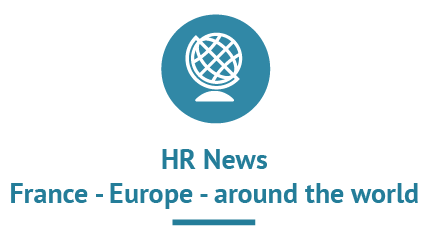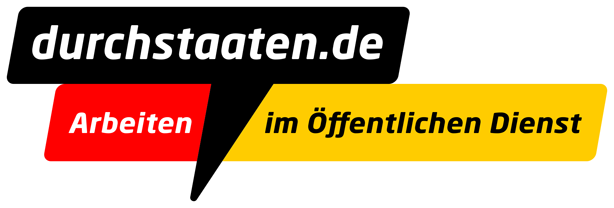|
If you are having trouble viewing this email, please
download the PDF version
or contact us.
|
 |
| #05 - May 2018 |
| PDF version - Manage your subscription - Search - Archives |

|
|
vision RH is a newsletter published by the French Directorate General for Administration and the Civil Service (DGAFP).
It draws on information sources and reports issued by public administrations, the private sector, international organisations and the press, in several different languages. It aims to provide a broad view of current human resources and civil service initiatives. |
|

|

|
| The urgent need to boost the appeal of Germany's civil service | |||||
|
Against the backdrop of an ageing population and a favourable job market, making the civil service an appealing career choice can become a real challenge. This is the situation Germany is currently facing: one-fourth of the civil service workforce is at least 55 years old and the unemployment rate (5.3% in April) has been falling continuously since 2009. Although the retirement age has been raised (from 65 to 67 as of 1 January 20121), the country is finding it difficult to recruit public servants, and many posts remain vacant for long periods. Simply guaranteeing a job for life (de jure for any civil servant and de facto for non-civil servants on permanent contracts) is no longer enough to convince people to choose a public-sector career. In an effort to reverse this trend, the federal government has taken the lead. It has rolled out two initiatives designed to motivate candidates by emphasising two strong points of the civil service: commitment to the community and the variety of professions available within the government. A widespread communications campaign, called "durchstaaaten" was launched in early summer 2017: But the government doesn't want to limit itself to young people entering the job market. Why not attract the attention of private-sector workers who can – in addition to their training – contribute their experience and skillsets? This innovative approach is based both on a desire for openness and on a need to attract talent that is lacking. As part of this initiative, which targets Quereinsteiger (people entering a field of work different from their educational background), the authorities have emphasised that each applicant's experience should be taken into account, stating that discrimination based on age or seniority within the civil service will not be tolerated during the recruitment process. The goal is clear: to give people who choose to join the public sector at a later time in their careers exactly the same opportunities as those who have always worked there. The initial results are encouraging, even though the effects will only be seen in the long term. The most recent figures reveal that the number of public-sector jobs has risen slightly. |
|||||
|
|||||
|
|
|||||

|
|||||

|

|

|
| Innovation in the hospital and healthcare sectors | |||||
|
How can stakeholders improve the workplace organisation in hospitals, which are subject to ever-increasing constraints? The organisers of "At the Heart of the Hospital" believe that staff are the ones best suited to answer this question. In partnership with professional associations, a national consultation was held, at the end of which five innovation projects were selected and presented at an evening discussion. |
|||||
|
|||||
|
|
|||||

|
|||||
| "Canada Beyond 150" – Renewing and diversifying the public service | |||||
|
Led by Canada's Privy Council Office (PCO) and Policy Horizons Canada, the year-long "Canada Beyond 150" programme brought together a group of 86 early-career public servants (under five years of seniority) from a variety of roles and departments. Using strategic foresight, participants worked together to address diversity and inclusion challenges. They produced seven reports that advocate cultural change in the public service. |
|||||
|
|||||
|
|
|||||

|
|||||
| Decisive action to advance gender equality in Estonia | |||||
|
The Estonian government is seeking ways of reducing the gender pay gap in the public sector, which is the largest in the EU (nine percent). It recently adopted a series of proposals, including making salaries more transparent and an in-depth study to determine the reasons behind the gap. In the private sector, efforts by Estonia's largest bank, Swedbank, have reduced the company's pay gap to less than one percent. |
|||||
|
|||||
|
|
|||||

|
|||||

|

|
| Encouraging talent: teamcrafting in Belgium | |||||
|
The federal government has produced a guide for HR actors who want to value and / or make better use of talent. He proposes a methodology for using teamcrafting, which consists of adjusting positions within a team to create relevant and motivating functions. Concretely, it makes it possible to make the link between the activities of a collective and the individual talents in order to increase the collaboration. |
|||||
|
|||||
|
|
|||||

|
|||||
| Directive to professionalize the recruitment of public officials in Italy | |||||
|
A new directive, implemented under the Madia law, aims to improve the match between the recruitment of staff and the needs of administrations. It strengthens the role of competitions, while at the same time professionalizing it (more precise definition of the conditions of access, preselection procedure targeted on the functions, equality of qualifications regarding to diplomas, tests on the ability to solve problems). |
|||||
|
|||||
|
|
|||||

|
|||||
| New recruitment procedures in the British Civil Service | |||||
|
Introducing a more generalized and sustainable new selection criteria such as behavioral skills and the recognition of the professional experience in recruitment procedures is the concept of the "Success profiles" program. This change should limit the number of "generalist" profiles to the benefit of specialists whose experience will make them more able to lead major reform projects. |
|||||
|
|||||
|
|
|||||

|
|||||

|

|
| Mentoring young civil service managers in Sweden | |||||
|
To help newly recruited civil service managers integrate better, the Swedish Agency for Government Employers (Arbetsgivarverkets) has set up a six-month-long mentoring programme. This initiative has a twofold objective: to raise awareness of diversity in the public sector (the highest in the EU) and to help non-Swedish people become better acquainted with the Swedish administration's way of doing things. Mentors are experienced executives who have had similar experiences themselves. |
|||||
|
|||||
|
|
|||||

|
|||||
| Hiring Manager: online support for federal employers in the US | |||||
|
Hiring Manager is an online tool to help managers target their staffing needs and organise the work of their teams. The system put in place by the federal government and its HR University. Hiring Manager includes a Job Description and Workforce Planning Assistant, as well as training modules focusing on engaging employees and keeping them motivated. |
|||||
|
|||||
|
|
|||||

|
|||||
| Fostering intra-regional managerial mobility: an example from the Centre–Val de Loire region | |||||
|
Four local authorities have joined forces to create a common "mobility path" and provide new career prospects by building bridges. An initial group of thirty managers were given a preparation course aimed at developing and deepening a shared culture. According to the project's creators, it is as much about increasing inter-community mobility as instilling a new spirit of networking. |
|||||
|
|||||
|
|
|||||

|
|||||

|

|
| Legal action over a civil service social partners' agreement | |||||
|
The European Federation of Public Service Unions (EPSU) plans to take the European Commission to court for failing to implement a Social Partners’ Agreement (which was signed by France) by legislation. The agreement would provide information and consultation rights to central government employees in areas such as restructuring, collective redundancies, working time, health and safety and work/life balance. |
|||||
|
|||||
|
|
|||||

|
|||||
| "All-Roles-Flex": telework becomes the norm for everyone in Australia | |||||
|
Victoria, Australia's second most populous state, has rolled out the "All-Roles-Flex" initiative, which provides for implementation of flexible working arrangements (flexitime, teleworking, part-time) across the state's public service and makes it the norm whatever the level. The Community and Public Sector Union considers this measure essential to keep public employment appealing and has established a set of guidelines to facilitate its implementation. |
|||||
|
|||||
|
|
|||||

|
|||||
| Collective accountability and transparency to cope with absenteeism in Spain | |||||
|
New measures to reduce the volume of absences in the administration: in agreement with the professional organisations and in return for eliminating a measure under which the first three days of sick leave are unpaid (which was introduced in 2012 and which had little effect on absenteeism), the government will publish on its website absentee data broken down by department (displayed in percentage and by reason). |
|||||
|
|||||
|
|
|||||

|
|||||

|

|
| Recruitment at Elior – chatbots and a new branding effort | |||||
|
For any HR department, building a targeted pool of candidates broken down by profile is a strategic and complex task. Elior, a French company focusing on catering and related services, has a new recruitment strategy (the company hires some 7,000 people per year, 30% of whom are young graduates) that automates the pre-selection process for applications submitted to its dedicated online platform. The key tool of this new approach is a chatbot that directs visitors towards the various professions the company offers. This in itself is not new; the innovation lies in the fact that the chatbot is a recruitment channel in its own right, allowing candidates to apply directly without sending a CV or cover letter. By opting for this means of communication, Elior allows its HR teams to focus on value-added tasks, but also boosts its own visibility. The new recruitment method goes hand-in-hand with a new branding effort called #LeJobQueJeVeux (#TheJobThatIWant). Employees are the focus of the company's commitments concerning integration into the company, adapting to one's position and career development. Employee retention is one of the company's priorities: 47% of managers hired in 2017 were internal candidates and Elior has committed to increasing this to 70% by 2025. |
|||||
|
|||||
|
|
|||||

|
|||||

|

|
| Hackathons and HR team up | |||||
|
Collaborative practices are the new business imperative: driven by new technologies, they are synonymous with performance. HR departments are key stakeholders when it comes to integrating these practices within organisations. The HR function itself is beginning to implement them; examples of this are hackathons organised around HR processes and management, to encourage collaborative innovation. Initially the domain of developers, hackathons began attracting the attention of HR departments a few years ago. They take the form of "collaborative sprints" and are organised in schools, between companies or even within a company. Recently, France’s National Health Insurance Fund (CNAM) organised a hackathon on HR processes. With a focus on operations, the event provided a response to HR issues in several companies – including AXA, Engie and Orange – with innovative proposals made by diverse teams set up for the occasion. The Banque de France brought together 150 managers for its first management hackathon. The initiative resulted in new tools and new practices being proposed. Other Initiatives are underway in the State and territorial civil services. These include: • In March, the Civilian Human Resources Department (SRHC) of the Ministry for the Armed Forces, with support from the HR innovation fund of the Directorate General for Administration and the Civil Service (DGAFP) and with expertise provided by the Government Intangible Assets Agency (APIE), organised a hackathon to overhaul the recruitment of civilian staff (particularly those under long-term contracts). The solutions that were identified may be used by the department's partners. • Fabrique RH, the innovation lab of the Ile-de-France prefecture, is accustomed to organising brainstorming workshops. In April, it sponsored a three-day hackathon in which prizes were awarded in three categories: increasing the appeal of devolved departments, an employee-friendly workplace and gender equality). The three winners received one year's funding and support for carrying out their project. Major initiatives undertaken by other countries include: • #PSHACK100 in Finland (September 2017), a public sector-wide initiative that included two HR-related objectives • Future of Work in Canada (October 2017), which was entirely devoted to new forms of work. |
|||||
|
|||||
|
|
|||||

|
|||||

|
|
Share
|
||||
|
||||
| SUBSCRIBE - UPDATE YOUR SUBSCRIPTION - ARCHIVES - RSS - UNSUBSCRIBE |
|
French Directorate-General for Administration and the Civil Service (DGAFP)
Publication Manager: Thierry LE GOFF Managing Editor: Xavier MAIRE Editor-in-chief: Jean-Marc CHNEIDER Publication Coordinator and Autor: Jean-François ADRIAN Layout and graphic design: Jean-François ADRIAN and Alphania. The texts of the publication do not reflect the point of view of the DGAFP
In accordance to the French Act n°78-17 of 6 January 1978 on information technology, data files and civil liberties and to the european General Data Protection Regulation (GDPR), your personal data is stored securely and you are entitled to access, correct and delete them. To do so, you should send an e-mail to (contact-visionrh.dgafp@finances.gouv.fr) or write to DGAFP: 139, rue de Bercy - 75012 Paris; France.
Reproduction is authorized with mention of the source © DGAFP 2019 / N° ISSN: 2606-7528. |
|
|




